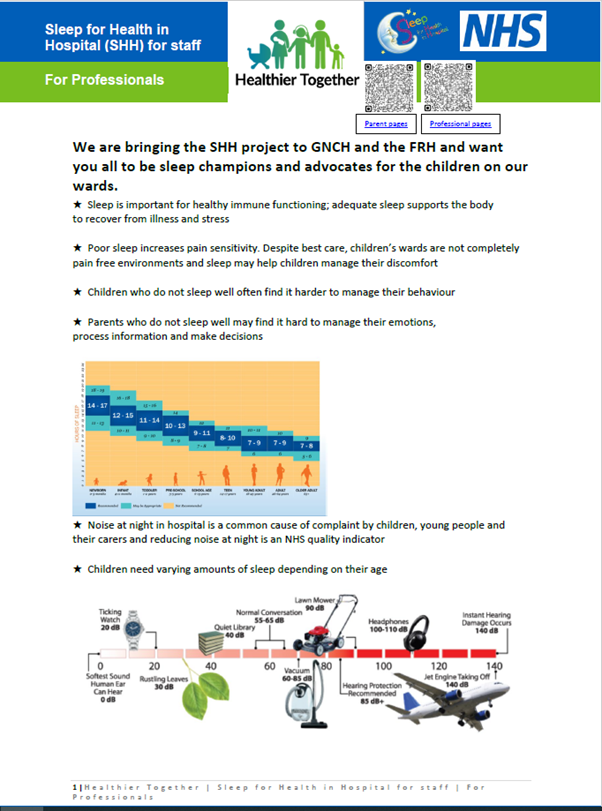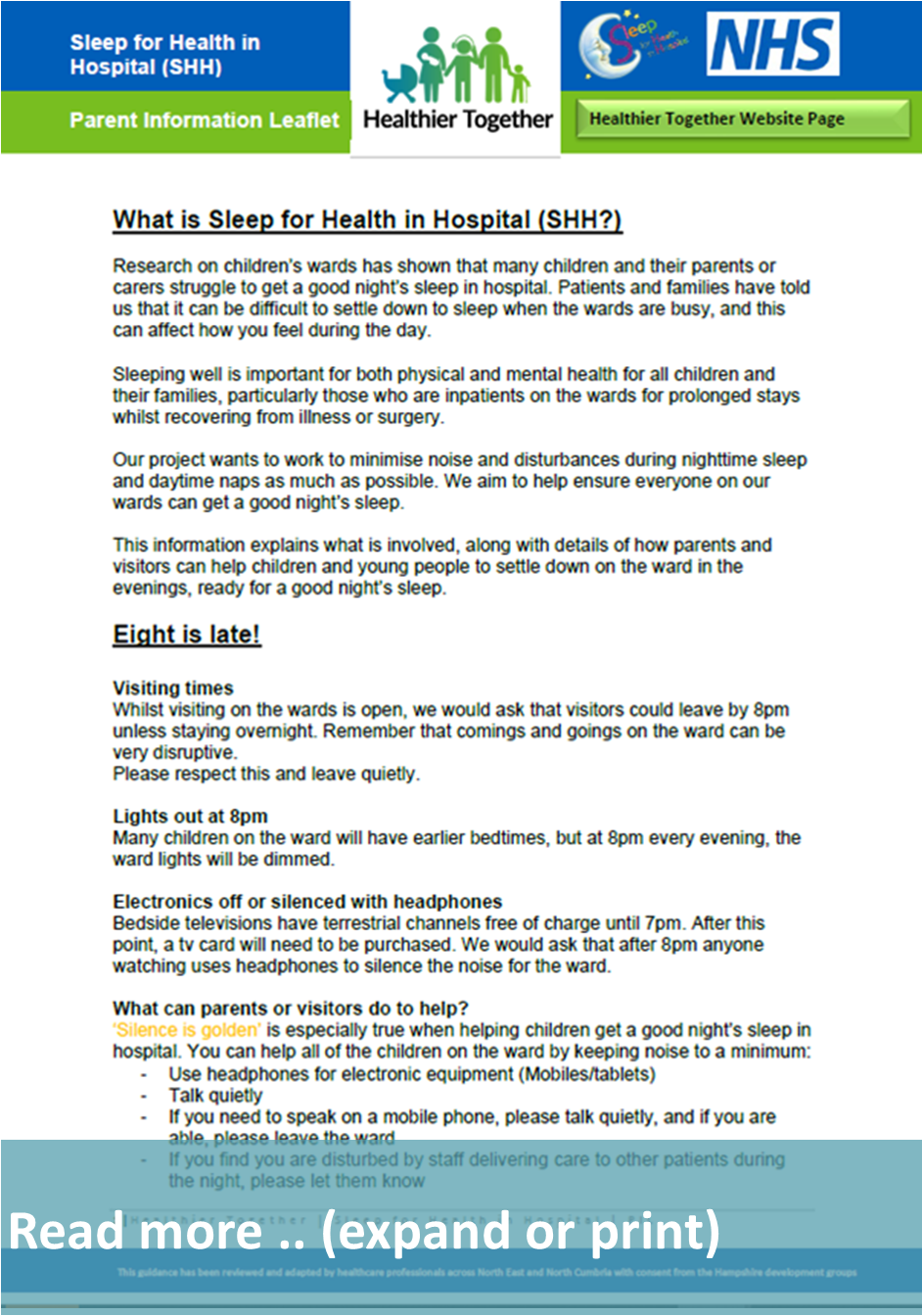Sleep for Health in Hospital (for staff)
We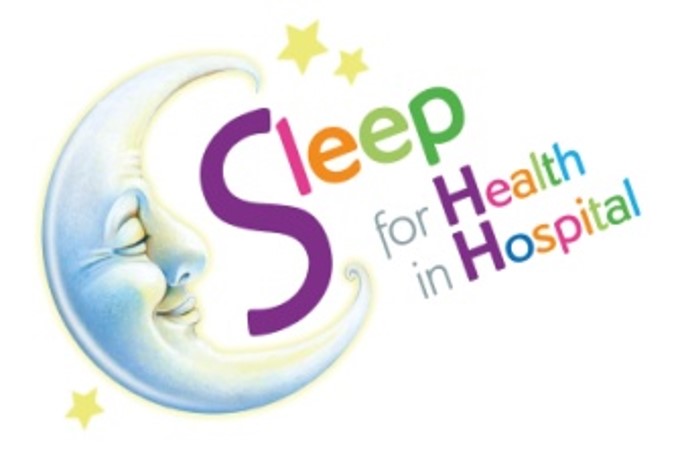 are bringing the SHH project to GNCH and the FRH and want you all to be sleep champions and advocates for the children on our wards.
are bringing the SHH project to GNCH and the FRH and want you all to be sleep champions and advocates for the children on our wards.
- Sleep is important for healthy immune functioning; adequate sleep supports the body to recover from illness and stress
- Poor sleep increases pain sensitivity. Despite best care, children’s wards are not completely pain free environments and sleep may help children manage their discomfort
- Children who do not sleep well often find it harder to manage their behaviour
- Parents who do not sleep well may find it hard to manage their emotions, process information and make decisions

- Noise at night in hospital is a common cause of complaint by children, young people and their carers and reducing noise at night is an NHS quality indicator
- Children need varying amounts of sleep depending on their age
Our project wants to work to minimise noise and disturbances during night-time sleep and daytime naps as much as possible. We aim to help ensure everyone on our wards can get a good night’s sleep.
SoundEars have been installed onto the wards, these monitor the noise levels and are there as a visual reminder about how loud it can be. They mean that we can also see if our project is making a difference to overall sound levels.
Things we can do to help avoid the disturbance of patients and their families
-
How often are observations done, can you safely reduce the frequency?
-
Improve co-ordinated care: think about whether you can combine doing observations with giving medications at one time?
-
Avoid prescribing/giving medications between 10pm-6am if possible.
-
Try to close doors quietly and to avoid noisy bins!
-
Keep noise and chatter to a minimum around patient spaces
-
Keep voices low when talking
-
Avoid beeping machinery
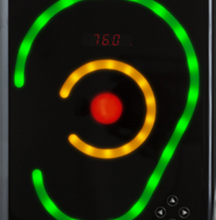
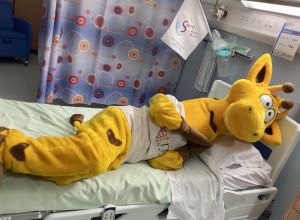
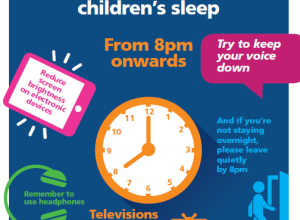
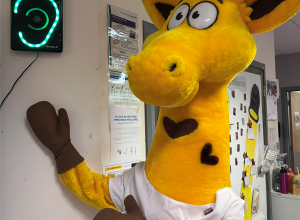
Eight is late!
Visiting times
Whilst visiting on the wards is open, we would ask that visitors could leave by 8pm unless staying overnight. Remember that comings and goings on the ward can be very disruptive.
Please respect this and leave quietly.
Lights out at 8pm
Many children on the ward will have earlier bedtimes, but at 8pm every evening, the ward lights will be dimmed.
Electronics off or silenced with headphones
Bedside televisions have terrestrial channels free of charge until 7pm. After this point, a tv card will need to be purchased. We would ask that after 8pm anyone watching uses headphones to silence the noise for the ward.
Advice to give to parents or visitors
‘Silence is golden’
This is especially true when helping children get a good night’s sleep in hospital. You can help all of the children on the ward by keeping noise to a minimum:
- Use headphones for electronic equipment (Mobiles/tablets)
- Talk quietly
- If you need to speak on a mobile phone, please talk quietly, and if you are able, please leave the ward
- If you find you are disturbed by staff delivering care to other patients during the night, please let them know
- Keep the lights down low; dim screens where possible and switch them off at your child’s bedtime

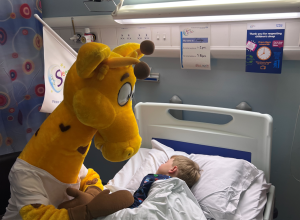
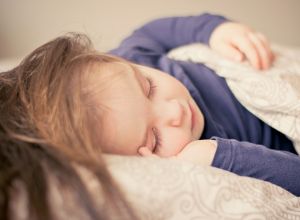
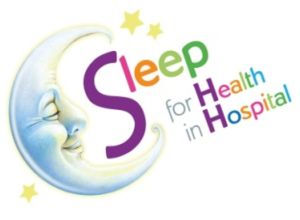
Sleep Know-how
Children need to sleep to recover from illness and to feel as well as possible during the day, and so do parents and carers.
What science tells us about sleep
-
Sleep helps the body recover. Your immune system (the way your body fights infection) doesn’t work well without enough sleep. This is why we get colds when we are tired and ‘run down’.
-
Lack of sleep increases pain sensitivity. If you’re tired little aches or pains feel worse – sleeping well can help children manage discomfort.
-
Children who don’t sleep well find it harder to manage their behaviour. Your child may be grumpy or more difficult during the day.
-
When parents don’t get enough sleep they find it hard to manage their emotions. They may be more upset than usual and struggle to think straight or make decisions.

What does the SHH project mean for ward children?
A calm environment and regular bedtime routine can help children settle down to sleep, so we want to help promote this in the hospital. This means:
Bedtime signs:
- Child’s bedtime and nap time will be written on a sign near to their bed as a reminder to parents, staff and visitors to respect their sleep time.
- Remember that wake up time can be early in hospital, so children may need to settle down earlier than at home to get enough sleep.
How do I work out how much sleep a child needs?
All children are different, but this is a guide to average sleep requirements.
| Child’s age | Hours of sleep needed |
|---|---|
|
1 to 3 years |
12 hours |
| 3 to 5 years | 11 hours |
| 5 to 13 years | 10 hours |
| Teenagers | 9 hours |
Information adapted from Sleep for Health In Hospital Southampton webpage https://www.piernetwork.org/shh.html




